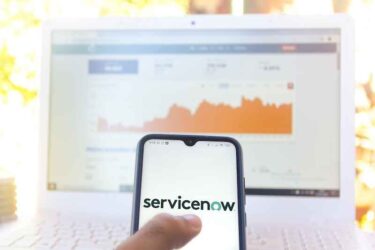The Dealmaker’s Secret to a 51% Winner
Alpesh Patel|June 13, 2024

For this week’s Dealmaker’s Diary, we’re doing something a little different.
I want to look at a trade we closed in 2024 – in my award-winning GVI Investor research service – to illustrate what I look for in a potential investment.
I think now is the perfect time for this type of review. Because the biggest problem in this market is MBS.
That’s “missed the boat syndrome”… aka FOMO.
Take semiconductor makers, for example, which have exploded due to AI. The entire sector is seeing tremendous inflows following Nvidia (NVDA)’s historic rise.
There are no doubt some great plays to be made here.
You can bet there are plenty of turkeys, too.
The question is which semiconductor companies are not already over-extended (notice I did not say overvalued) on their price. Determining this can help you avoid riding a rollercoaster downward whilst others jet upward.
And this idea doesn’t just apply to the booming world of AI hardware.
We can see the concept at play in our ServiceNow (NOW) recommendation, which we shared with subscribers in April 2023 and officially closed earlier this year for a 51% return.
ServiceNow is a leading provider of cloud-based solutions for enterprise workflows. (Think IT help desk software.) Its popular product line led Forbes to name it one of the world’s most innovative companies.
But as you’ll see, those types of factoids don’t factor into my GVI system. (They’re just icing on the cake.)
Let me break it down for you…
Why ServiceNow?
- Valuation: At the time of my initial recommendation, ServiceNow was trading at a valuation that, while not undervalued in traditional terms, offered significant growth potential. Its price-to-earnings (P/E) ratio was higher than some peers, but it was justified by the company’s superior growth trajectory and market position. This indicated a strong potential for price appreciation. My team and I also cross-referenced this against historic P/E for the stock, price/earnings-to-growth (PEG) ratio, and discount cash flow measures for valuation. (This is our water-tight triple lock.)
- Growth: ServiceNow’s growth prospects were exceptionally robust. The company’s leading position in the digital transformation market, coupled with its innovative platform – which integrates and automates enterprise workflows – positioned it for substantial revenue and earnings growth. The shift towards digital workflows and cloud-based solutions in enterprises globally was a strong tailwind for ServiceNow.
- Dividend Yields: Although ServiceNow does not pay dividends, its reinvestment strategy into growth and innovation provided substantial capital appreciation. And that’s as good as income over the long run. This approach aligned with our investment philosophy that focuses on high-growth potential and capital gains over annual yield.
- CROCI (Cash Return on Capital Invested): The CROCI metric for ServiceNow was impressive, reflecting the company’s efficient use of capital to generate high returns. This indicated strong management capability in leveraging invested capital to drive growth and profitability. And as longtime readers know, this powerful ratio is also used by Goldman Sachs Wealth Management to select stocks for their private clients, offering large potential returns.
- Sortino Ratio and Volatility: The Sortino ratio for ServiceNow was favourable, indicating that the stock’s returns were strong relative to its downside risk. The company’s volatility was within acceptable limits, aligning well with our GVI portfolio’s risk management strategy. The risk-adjusted performance metrics reinforced the attractiveness of ServiceNow as an investment.
- Technical Indicators (MACD): The Moving Average Convergence Divergence (MACD) chart for ServiceNow indicated strong upward momentum. As a trend-following momentum indicator, the MACD showed a positive relationship between the stock’s short-term and long-term price movements, signalling a bullish trend that corroborated our fundamental analysis.
So those are the comprehensive analyses of both fundamental and technical factors in which we ground all GVI Investor recommendations.
And ServiceNow’s subsequent performance certainly validated our thesis, as the chart shows.

Over the months that followed our initial recommendation, ServiceNow continued to expand its market share and delivered strong earnings. It consistently surpassed market expectations.
And, again, the stock price appreciated significantly, driven by robust revenue growth and strategic innovations.
A Perfect Play For Us
ServiceNow’s focus on expanding product offerings and entering new markets further bolstered its growth prospects. And the company’s ability to secure high-profile clients coupled with its strong recurring revenue model created a solid foundation for sustained growth and profitability.
In short, it was the perfect candidate for our GVI Investor portfolio. It checked all our boxes. And, today, we can point to ServiceNow’s strong performance to show the importance of investing in companies with robust fundamentals, innovative capabilities, and favorable market positions.
With a solid system in place, we never have to worry about “missing the boat.” Instead, we can watch patiently as our ship comes in, again and again.

Alpesh Patel
Alpesh Patel is an award-winning hedge fund and private equity fund manager, international best-selling author, entrepreneur and Dealmaker. He is the Founder and CEO of Praefinium Partners and is a Financial Times Top FTSE 100 forecaster. As a senior-most Dealmaker in the U.K.’s Department for International Trade, he is part of a team that has helped deliver $1 billion of investment to the U.K. since 2005 . He’s also a former Council Member of the 100-year-old Chatham House, the foreign affairs think-tank, whose patron is Queen Elizabeth. For his services to the U.K. economy, Alpesh received the Order of the British Empire (OBE) from the Queen in 2020. As a recognized authority on fintech, online trading and venture capital, his past and current client list includes American Express, Merrill Lynch HSBC, Charles Schwab, Goldman Sachs, Barclays, TD Bank, NYSE Life… and more.



